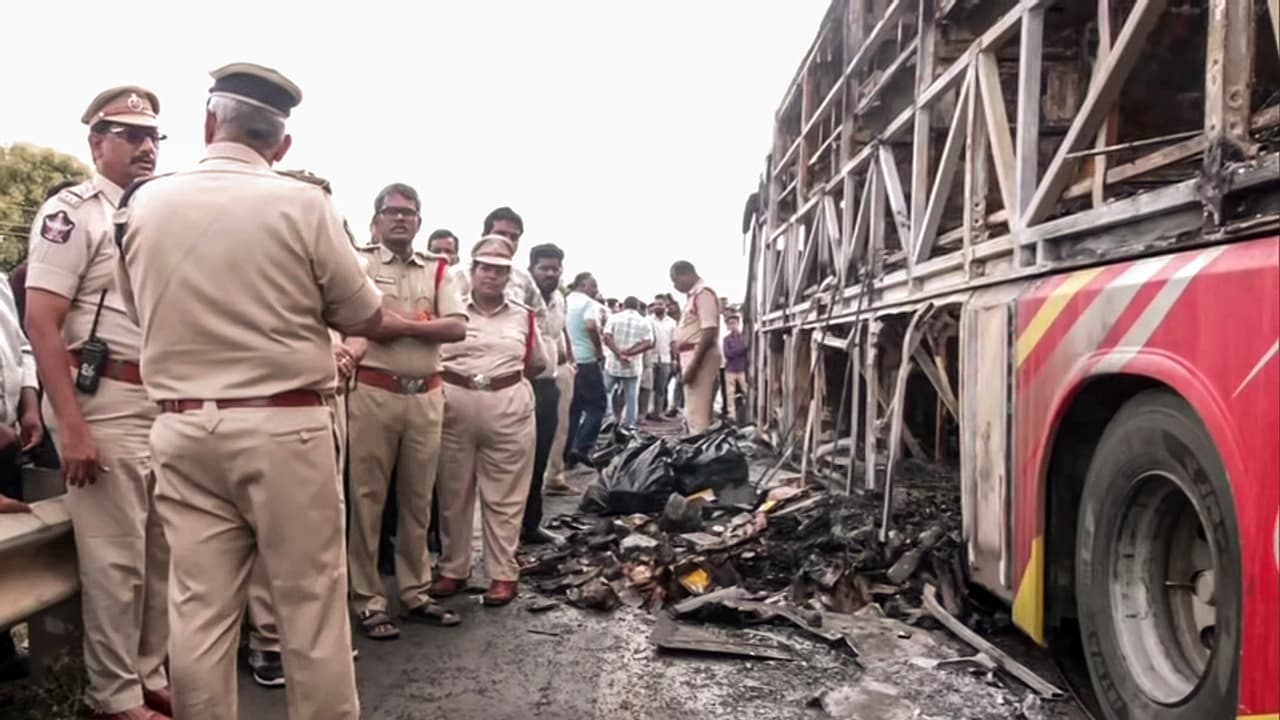Former IndianOil Chairman Shrikant M Vaidya is calling for a complete ban on sleeper buses in India. He labels them “death traps by design,” citing recent fatal fires and over 130 deaths in a decade.
Former IndianOil Chairman Shrikant M Vaidya has sparked a national debate after urging the government to ban sleeper buses in India, calling them “a death trap by design.” In a powerful LinkedIn post that’s resonating with readers, Vaidya said India can no longer afford to treat the growing number of bus fire tragedies as isolated incidents. “Sleeper Buses Must Be Banned — Not ‘Improved’. The design itself is a death trap,” he wrote.
‘These are not accidents — they are engineering failures’
Vaidya’s words come after two horrific bus fires this month, one in Kurnool, Andhra Pradesh, and another in Rajasthan, together claiming 41 lives. Over the past decade, more than 130 passengers have died in similar incidents, most while asleep, unable to escape.
“These are not misfortunes,” he wrote. “They’re the result of unsafe engineering and zero accountability.”
He broke down the danger in stark terms: narrow aisles, blocked exits, flammable interiors, and overcrowded cabins that leave passengers trapped within seconds once a fire starts. “Safety is achieved only through rigor, discipline, and zero compromise,” he said, adding that India’s current bus design fails every one of those tests.
How other nations acted and India didn’t
Vaidya pointed out that countries like China, Vietnam, and Germany took bold steps once they recognised the threat of sleeper bus fires.
- China banned sleeper buses completely in 2012.
- Vietnam rewrote its safety codes and evacuation rules.
- Germany allows sleeper layouts only under strict, low-density standards.
“India, meanwhile, continues with post-mortems instead of prevention,” he said, accusing regulators of acting only after tragedy strikes.
‘You can’t regulate a fire trap, you have to remove it’
According to Vaidya, India’s fragmented transport system makes meaningful oversight almost impossible. With 1.6 million buses on the road and nearly 78% of private operators running fewer than five vehicles, enforcing safety norms is a logistical nightmare. Many buses, he noted, are unsafe conversions with illegal wiring and poor maintenance.
“The business model prioritises seats, speed, and profit, not survivability,” he warned.
His message is blunt but clear: “Drastic incorrect design needs equally drastic corrective action. If China and Vietnam can do it, so can India.”
